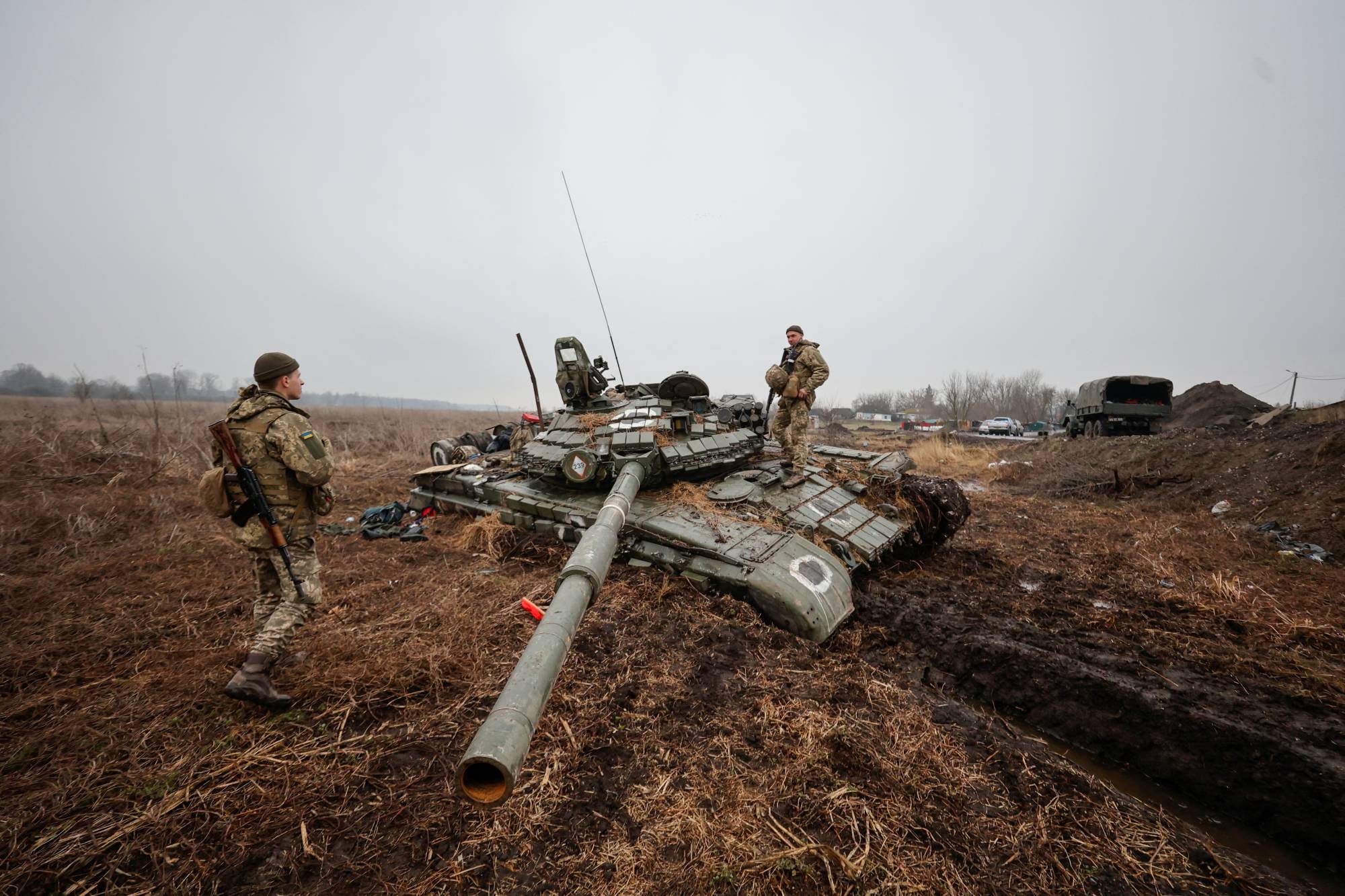A grim old Soviet joke probably rings far too true to Ukrainians today. A Frenchman says, “I take the bus to work, but when I travel around Europe, I use my Peugeot.” A Russian replies, “We, too, have a wonderful system of public transportation, but when we go to Europe, we use a tank."
That joke emerged in 1956, when Nikita Khrushchev ordered tanks into Budapest to crush the anti-Soviet Hungarian Revolution, and reappeared in 1968, when Leonid Brezhnev sent tanks to Czechoslovakia to crush the Prague Spring. But in 1989, when Mikhail Gorbachev chose not to send tanks or troops to Germany to preserve the Berlin Wall, the quip seemed set to become a thing of the past. If President Vladimir Putin has shown us anything, however, it is that we cannot believe the present, and all that matters for Russia’s future is its past.
For Putin, the past that matters most is the one the dissident author and Nobel laureate Aleksandr Solzhenitsyn exalted: the time when the Slavic peoples were united within the Orthodox Christian kingdom of Kievan Rus’. Kyiv formed its heart, making Ukraine central to Putin’s pan-Slavic vision.



